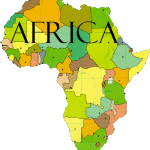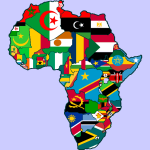In Barron’s, Paul Theroux argues that 150 years of aid to Africa has not helped much — and may have hurt more than it helped. 
Theroux discusses the failure of several recent externally-generated efforts, including Jeffrey Sachs’s top-down Millennium Project and the long history of well-meaning “Telescopic Philanthropists,” as well as Africa’s internal problems of governance.
(1) Charity undercuts self-sufficiency: If goods are provided free by foreigners, local small businesses cannot compete and go out of business. A cycle of dependency is thus created.
(2) Corrupt governments are a major problem: Bribery, oppressive regulations, extortion, and theft on a grand scale are endemic.
So Theroux calls for fresh thinking about how economic development occurs: “the self-sufficiency of ordinary people” must be enabled, by getting the politicians off their backs and asking the well-meaning to stop creating dependency.
In the language of ethics, I’d frame the moral dimension of the overall problem this way: predation and altruism are both problematic, and egoism is the moral and practical framework.
Phrasing it positively: Respect the self-responsibility of individuals and allow them to develop win-win social networks — and they will prosper. Phrasing it negatively: Do nothing that undercuts productivity individually or free trade socially — and people will flourish.
Related:
Senegalese-American businesswoman Magatte Wade on entrepreneurship as the fundamental route out of poverty for everyone, not only Africans.
William Kamkwamba’s windmill.
Interview with Phyllis Johnson on entrepreneurship, coffee, and empowering women in Africa.
My “What Business Ethics Can Learn from Entrepreneurship” [pdf].
I think the same dynamics that have produced the modern American ghetto are at play here.
Syndicated libertarian columnist and academic economist Thomas Sowell (b. 1930), who is black, wrote:
“The assumption that spending more of the taxpayer’s money will make things better has survived all kinds of evidence that it has made things worse. The black family – which survived slavery, discrimination, poverty, wars and depressions – began to come apart as the federal government moved in with its well-financed programs to ‘help.’ ”
It is instructive to compare the swift and generous response to the San Francisco earthquake of 1906 before FEMA was around with the response to the Katrina disaster when “the government took care of it.” In the former all society was galvanized in response; in the latter the state was seen the appropriate prime responder.
It may be a horrible way to put it but I feel an almost masturbatory quality in those Christian ads for African charities, parading the endless stream of little black kids while assiduously working our guilt. Yet suggest that capitalism would do a much better job and I doubt the response would be pretty.
I’ve mentioned this before but some years ago I saw an interview with sports star and entrepreneur “Magic Johnson”, a vigorous advocate of capitalism, that points out one path to lead both the American ghetto and Africa out of their present quagmires. He has brought businesses such as multiplex movie theatres and Starbucks coffee shops to the ghetto, hiring only local help. At theaters gang colors are forbidden, “not to disrespect,” he says in a filmed prologue before the movie, “but so everyone can enjoy the show.” Incidents of vandalism at these locations have been almost non-existent. He gave ghetto residents not pity and alms, but respect and jobs. By implication he said to them, “you can.”
Combined with formidable regulatory hurdles impeding integration of the poor into the workforce, including self-employment, it can be argued that the welfare state has a vested interest in, and actively manufactures the underclass that is its practical and ethical raison d’etre, imprinting on a large segment of the population the implicit words, “you can’t.” To practice the business and virtue of charity requires people who need it. Like the War on Drugs it is an industry feeding a vast middleclass infrastructure that victimizes precisely those it purports to help. (This is not to deny the often heroic dedication of individuals struggling to do their best, and too often burning out within the parameters of the system). Looking at the grim wastelands and war zones of the typical American inner city ghetto today, most of which sprang up after the commencement of Johnson’s War on Poverty, we must acknowledge that something has gone terribly wrong.
We accept that Africans are there to throw our alms at so we can bask in the warm glow of our compassion. Wonderful.
Perhaps the most important factor underpinning the failure of decolonization worldwide, including in Africa, is socialism-Marxism.
“The Third World” said Hannah Arendt, “is not a reality but an ideology.” I think it’s a reality created by ideology. The Third-World ideology and movement were associated with Pan-Africanism, Pan-Arabism, African socialism, Arab socialism, Maoism and communism. Nothing in my opinion nothing has done more to ensure the reality of the Third World remained such.
A better approach in my mind is outlined in ‘The Mystery of Capital’ by Peruvian economist Hernando de Soto, President of the Institute for Liberty and Democracy in Lima, Peru, who does much to explain the factors underpinning the stagnation of Third World economies, including why efforts to imitate Western style capitalism failed, and what must be done to genuinely empower them.
Here’s a video by him:
http://www.youtube.com/watch?v=1lvrChOugmE